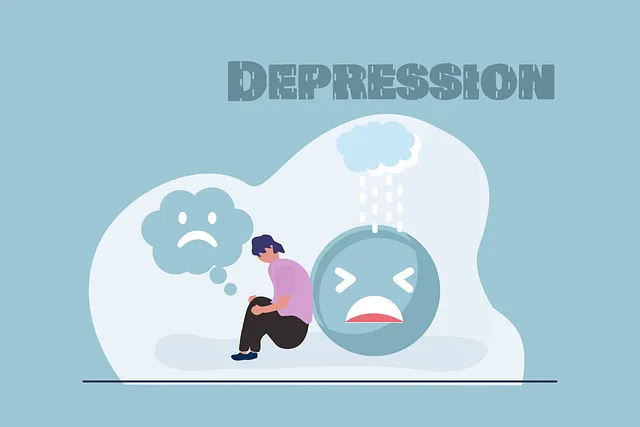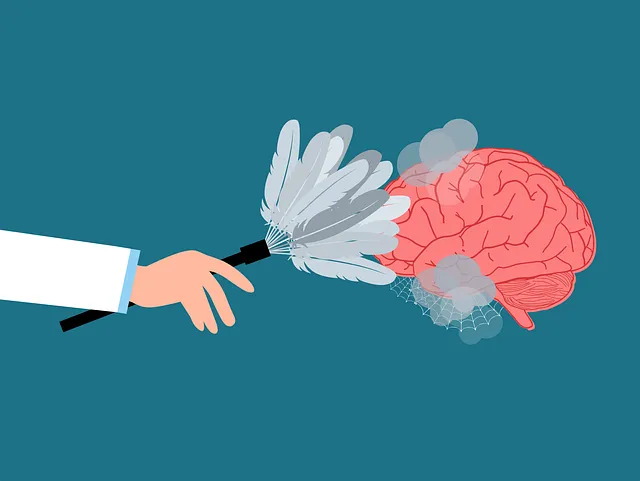Boulder Kaiser Permanente behavioral health services reviews emphasize risk management planning as a cornerstone for patient safety and supportive environments in mental healthcare. By identifying risks like emotional demands, confidentiality breaches, and client behaviors, they offer tailored resources and strategies. A comprehensive risk management plan, inspired by these reviews, incorporates crisis intervention, self-care routines, and inner strength development to protect both practitioners and clients. Proactive measures such as mental wellness coaching and ongoing education programs enhance resilience, de-escalation techniques, and cultural competency, ultimately improving patient outcomes.
Mental health professionals are tasked with navigating complex emotional landscapes, making robust risk management planning crucial. This article explores essential strategies for safeguarding both clients and practitioners, drawing insights from the acclaimed Boulder Kaiser Permanente Behavioral Health Services Framework. We’ll delve into identifying risks, crafting comprehensive mitigation plans, and implementing continuous improvement strategies based on successful real-world applications, as exemplified by behavioral health services reviews of leading institutions like Boulder Kaiser Permanente.
- Understanding Risk Management in Mental Health Care
- The Boulder Kaiser Permanente Behavioral Health Services Framework
- Identifying Potential Risks and Hazards
- Developing a Comprehensive Risk Management Plan
- Implementation and Continuous Improvement Strategies
Understanding Risk Management in Mental Health Care

In the realm of mental health care, risk management planning is a vital component to ensuring patient safety and fostering a supportive environment. This involves identifying potential risks and implementing strategies to mitigate them, much like Boulder Kaiser Permanente behavioral health services reviews outline for their patients. Mental health professionals are well-versed in navigating complex situations, but they too must be equipped to handle unforeseen challenges. Effective risk management allows practitioners to create a secure space for clients, fostering trust and encouraging open dialogue.
The Stress Management Workshops Organization emphasizes the importance of equipping mental health professionals with tools to anticipate and manage risks. This includes not only crisis intervention techniques but also strategies for everyday stress management, as per Mental Health Policy Analysis and Advocacy recommendations. By integrating these practices into their routine, healthcare providers can enhance their resilience and better support their clients’ needs.
The Boulder Kaiser Permanente Behavioral Health Services Framework

The Boulder Kaiser Permanente Behavioral Health Services Framework is a highly regarded model designed to support mental health professionals in navigating complex ethical and clinical challenges. This framework emphasizes evidence-based practices, patient-centered care, and an integrated approach to treatment. By drawing on the expertise of leading organizations like Boulder Kaiser Permanente, mental health professionals can access valuable resources and insights tailored to their unique needs.
One key component of this framework is the focus on Inner Strength Development, encouraging professionals to prioritize self-care and resilience. Implementing effective Risk Management Planning for Mental Health Professionals is another crucial aspect, ensuring practitioners can mitigate potential risks while delivering high-quality care. Furthermore, the framework promotes the integration of Self-Care Routine Development for Better Mental Health, recognizing that professionals’ well-being is essential for optimal patient outcomes.
Identifying Potential Risks and Hazards

Identifying potential risks and hazards is a critical step in risk management planning for mental health professionals. At Boulder Kaiser Permanente behavioral health services, reviews highlight several key areas to consider. One significant risk lies in the emotional demands of the job, which can lead to burnout if not managed effectively. Self-care practices, such as regular exercise, mindfulness, and setting clear boundaries between work and personal life, are essential techniques to promote both mental wellness and emotional well-being.
Additionally, the dynamic nature of client interactions presents risks related to confidentiality breaches or challenging behaviors. The Mental Wellness Podcast Series Production can serve as a valuable resource for staying informed about best practices in risk mitigation. By fostering an environment that prioritizes self-care and equips professionals with effective promotion techniques for emotional well-being, organizations like Boulder Kaiser Permanente behavioral health services aim to minimize these hazards and ensure the highest quality of care.
Developing a Comprehensive Risk Management Plan

Developing a Comprehensive Risk Management Plan for mental health professionals is an essential step in ensuring the safety and well-being of both practitioners and their clients. At Boulder Kaiser Permanente behavioral health services, reviews highlight the importance of robust risk management strategies. This process involves identifying potential risks and hazards specific to the field of mental health, such as complex patient cases, high-stress environments, and exposure to traumatic experiences.
A well-crafted plan should encompass various components, including Crisis Intervention Guidance tailored for the unique needs of behavioral health professionals, Social Skills Training to enhance communication and de-escalation techniques, and fostering Emotional Intelligence to better recognize and manage one’s own emotions and those of clients. By integrating these elements, mental health practitioners can create a supportive work environment that minimizes risks while promoting positive patient outcomes.
Implementation and Continuous Improvement Strategies

Implementing risk management strategies is a dynamic process that requires continuous evaluation and adaptation for mental health professionals at Boulder Kaiser Permanente behavioral health services reviews. To ensure effectiveness, these programs must evolve alongside emerging challenges in the field. One key strategy involves integrating burnout prevention initiatives, such as regular mental wellness coaching sessions, into the workflow to support staff resilience. These interventions not only help professionals maintain their own mental wellness but also improve patient care by fostering a supportive and sustainable work environment.
Additionally, ongoing mental health education programs play a crucial role in risk management. Designing these programs with an emphasis on practical skills and knowledge can empower professionals to better navigate complex situations. By participating in regular workshops and training sessions, staff members can enhance their de-escalation techniques, crisis intervention strategies, and cultural competency—all of which contribute to safer and more positive patient outcomes. Such continuous learning opportunities not only promote individual growth but also drive organizational improvement, reflecting a proactive approach to risk management that sets Boulder Kaiser Permanente behavioral health services reviews apart.
Mental health professionals play a crucial role in fostering well-being, but they are not immune to risks. Effective risk management planning is essential for creating a safe and supportive environment. By adopting strategies inspired by the Boulder Kaiser Permanente Behavioral Health Services Framework, professionals can identify potential hazards, develop robust plans, and continuously improve their practices. This approach ensures that patients receive high-quality care while mitigating risks, making it a valuable resource for mental health services reviews.






